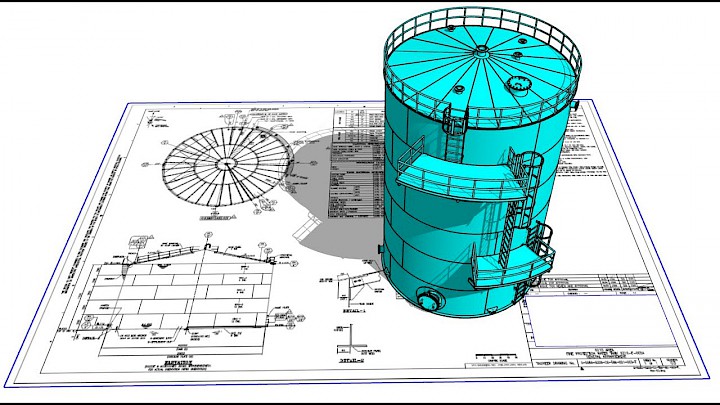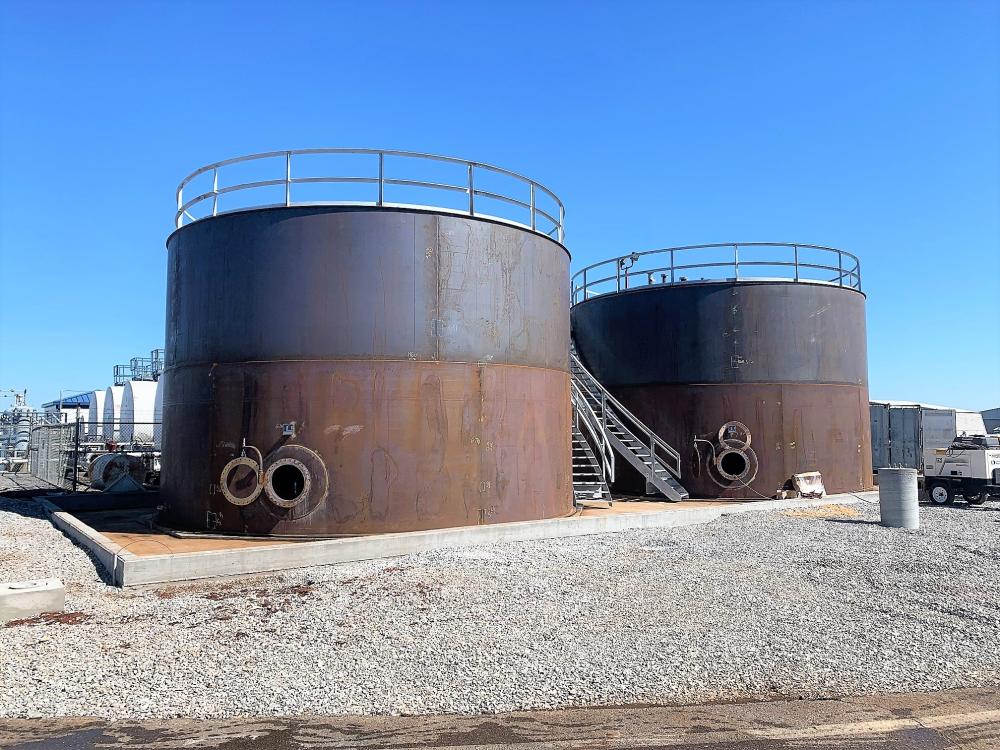The Advantages of Welding Inspection for Improved Safety And Security and Efficiency
Welding evaluations are vital for making certain that frameworks meet strict industry criteria. They play a crucial function in identifying problems early, thereby improving safety and security and decreasing the threat of devastating failings. In addition, these examinations can lead to substantial price savings by preventing expensive repair work and downtime. As companies go for enhanced efficiency and integrity, the importance of a robust inspection process can not be overstated. What various other benefits might emerge from a commitment to thorough welding evaluations?
Making Sure Conformity With Sector Requirements
Guaranteeing compliance with sector requirements is essential for maintaining high quality and safety and security in welding tasks. Abiding by recognized protocols not just protects workers however likewise enhances the longevity and efficiency of the last product. Welding inspections conducted at numerous stages of the process aid identify any kind of deviations from these standards, allowing prompt rehabilitative activities. This aggressive approach reduces the danger of failings that might arise from low quality workmanship.
Furthermore, conformity with industry requirements promotes trust fund amongst stakeholders, including customers, regulative bodies, and the workforce. It signifies a commitment to excellence and liable techniques, which can bring about boosted organization opportunities and an one-upmanship in the market - API 650 Welding Inspection. Routine examinations also ensure that products and strategies made use of line up with the current technological improvements and security guidelines. Eventually, adherence to market requirements is not just a governing need yet a foundation of top quality assurance in welding tasks
Enhancing Safety Via Early Discovery of Problems
While the main objective of welding examinations often fixates conformity, they play an essential duty in improving security by making it possible for the very early discovery of flaws. Determining issues such as incomplete combination, cracks, or porosity throughout examinations can considerably reduce the risk of tragic failings. Early detection allows for prompt interventions, ensuring that damaged welds do not jeopardize architectural stability.
Additionally, organized evaluations cultivate a culture of safety and security within companies by emphasizing the value of quality assurance. This aggressive method not just safeguards employees but additionally safeguards the surrounding environment. Normal inspections can disclose fads in problem event, enabling for changes in welding techniques and training programs to attend to underlying issues.
As a result, welding evaluations act as an essential protect, strengthening overall security and efficiency by identifying flaws prior to they escalate into severe threats. This commitment to high quality straight adds to the long life and reliability of welded structures.
Minimizing Expenses by Protecting Against Failings
By implementing extensive welding assessments, companies can properly lower prices connected with failures and rework. The proactive identification of flaws throughout the welding procedure lessens the danger of disastrous failings that can cause expensive repair services or substitutes. Early detection permits timely treatments, which protects against the rise of small problems into major problems that strain spending plans and sources. Additionally, by ensuring that welds meet defined criteria, organizations can avoid delays in task timelines triggered by the requirement for comprehensive rework or additional inspections later on while doing so. This not only conserves cash yet likewise boosts operational performance. Moreover, a reputation for high quality craftsmanship can bring about increased client satisfaction and repeat service, more adding to economic stability. On the whole, investing in welding examinations is a calculated approach that promotes cost financial savings while safeguarding the stability of bonded structures.
Improving Efficiency and Longevity of Frameworks


Welding inspections play a vital duty in boosting the efficiency and longevity of structures, as they confirm that welds are carried out to the highest possible criteria. By recognizing defects early in the welding process, try here evaluations protect against weaknesses that might jeopardize architectural stability. This aggressive technique warranties that the products utilized satisfy called for requirements, therefore maximizing their load-bearing ability and strength.
In addition, regular surveillance of welding methods adds to the general high quality of building projects. When welds are verified for conformity with sector requirements, the potential for fatigue and failing gradually is considerably decreased. Frameworks that are developed with correctly inspected welds are most likely to experience fewer upkeep problems and enhanced resilience.
Ultimately, strenuous welding evaluations not just reinforce the instant performance of a structure but likewise extend its functional lifespan, supplying long-term value to both end-users and home builders alike.
Fostering a Society of Quality and Dependability
A dedication to quality and integrity in welding practices considerably adds to the general success of building and construction projects. When companies focus on these values, they promote a society that encourages careful focus to detail and adherence to market criteria. This culture not only boosts the ability level of welders but click here now also advertises liability have a peek at these guys and teamwork among all stakeholders included in the job.

Routine welding assessments function as a foundation in this cultural shift, reinforcing the significance of consistent performance and safety measures (API 650 Welding Inspection). By implementing strenuous examination methods, firms can determine prospective defects early, mitigating risks and avoiding pricey rework. In addition, an emphasis on high quality and reliability infuses self-confidence among clients and partners, resulting in more powerful partnerships and improved credibilities
Eventually, fostering a society of high quality and integrity in welding methods not only boosts project end results however also guarantees lasting sustainability and success in the building industry.
Frequently Asked Questions
What Credentials Should a Welding Inspector Have?
A welding examiner need to possess appropriate qualifications, such as AWS CWI or CSWIP. Additionally, they must have experience in metallurgy, welding procedures, and evaluation methods, in addition to strong analytical abilities and focus to detail for efficient analyses.

How Frequently Should Welding Inspections Be Carried Out?
Welding assessments must be carried out consistently, preferably after each substantial stage of the welding procedure. In addition, routine examinations need to take place based upon job demands, service conditions, and regulatory standards to assure recurring top quality and safety and security.
What Equipment Are Utilized During Welding Inspections?
Welding evaluations utilize numerous devices, consisting of ultrasonic testers, magnetic bit testers, visual inspection devices, and radiographic devices. Each tool serves a details objective, making sure weld high quality and structural honesty with thorough evaluation and assessment.
Can Welding Inspections Be Executed From Another Location?
Welding evaluations can indeed be executed from another location using innovative innovations such as drones and specialized video cameras. These devices allow inspectors to analyze welding high quality and integrity from a range, improving performance and security in numerous atmospheres.
What Are the Common Kinds of Welding Defects?
Usual sorts of welding issues include porosity, splits, insufficient blend, damaging, and slag addition. These flaws can endanger the honesty and strength of welds, leading to potential failures in structural applications otherwise dealt with effectively.
Welding evaluations are essential for making sure that frameworks meet rigorous industry requirements. Welding examinations conducted at different phases of the process assistance recognize any discrepancies from these criteria, enabling timely restorative activities. Welding inspections play a vital duty in enhancing the performance and durability of frameworks, as they validate that welds are executed to the highest requirements. Welding assessments need to be conducted frequently, preferably after each substantial stage of the welding procedure. API 650 Welding Inspection. Welding inspections utilize various tools, including ultrasonic testers, magnetic bit testers, visual assessment devices, and radiographic devices